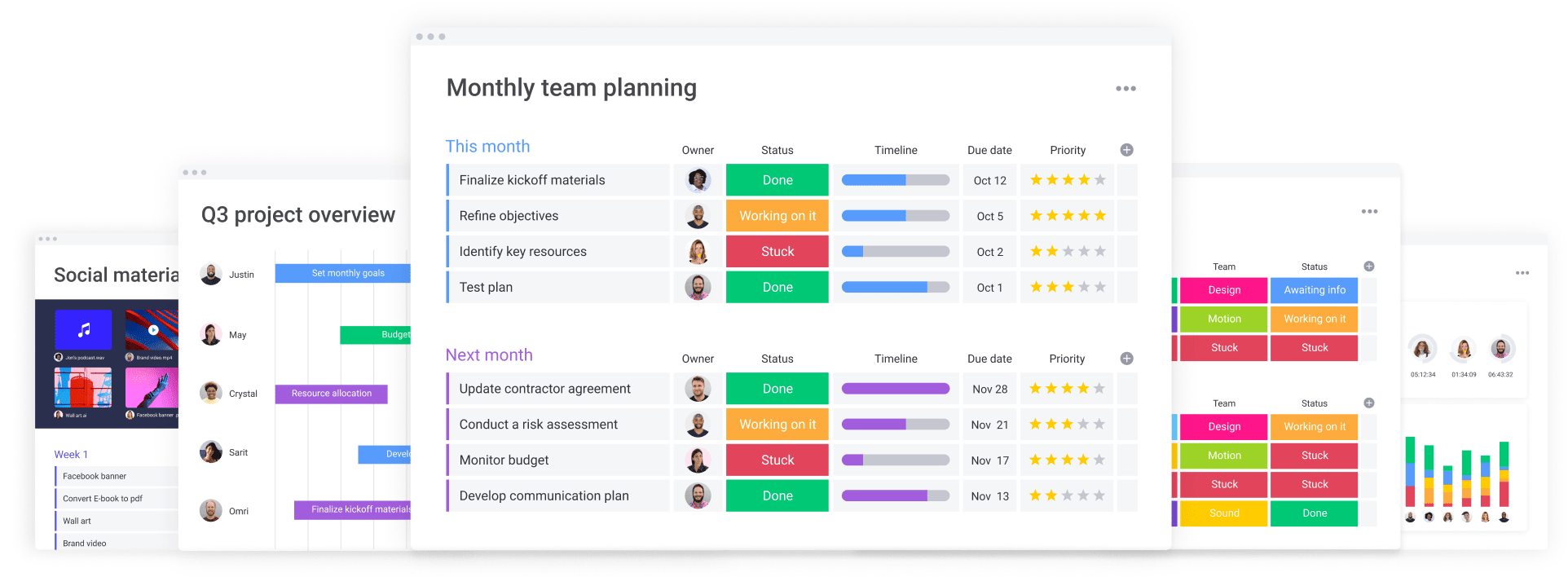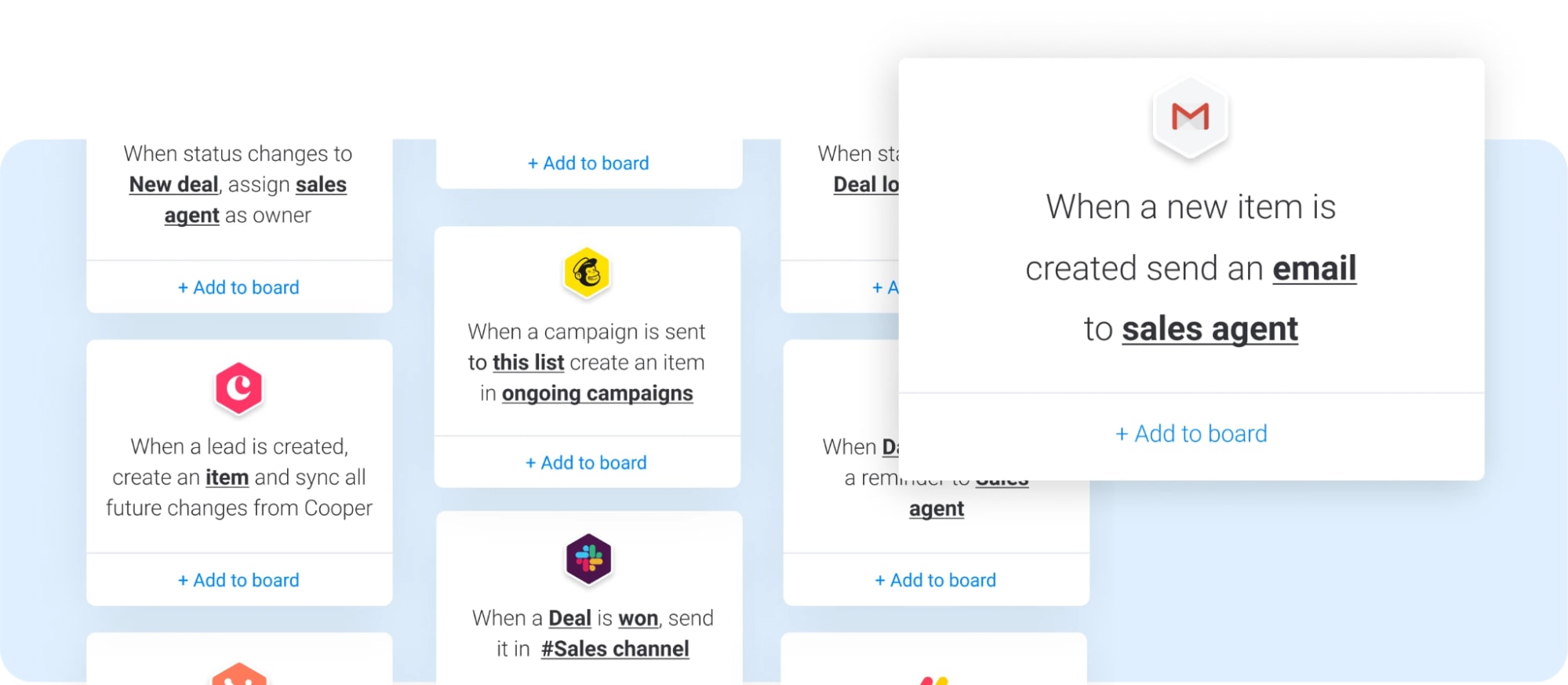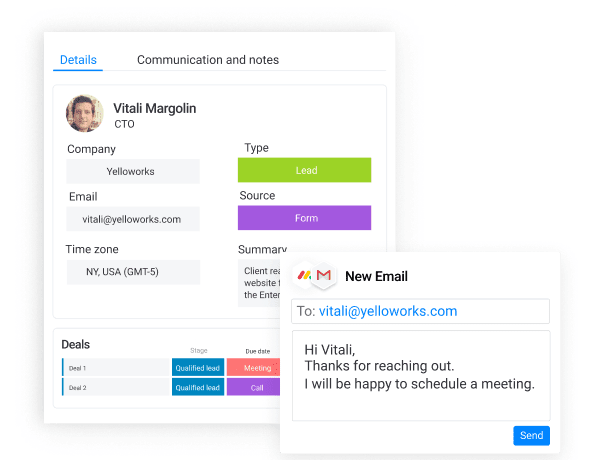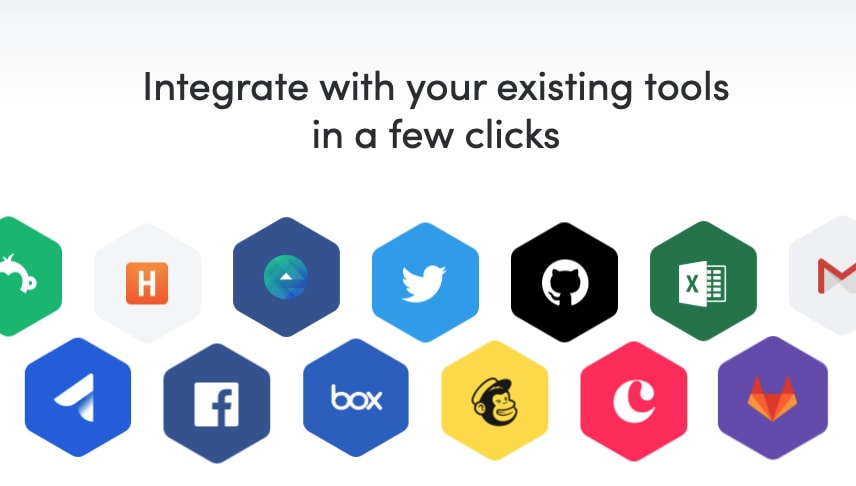A well-kept secret? CRM software — extremely capable contact and communication management solutions — can be useful when applied in the context of your day-to-day life outside of work.
In this article, we’re going to cover everything you need to know about personal CRM solutions. What they are, why they’re so powerful, and how to use them meaningfully to have an impact outside of the traditional sales environment.
What is a personal CRM system?
As a recap, CRM stands for customer relationship management, or the strategic business practice of fostering meaningful relationships with customers and clients to improve loyalty behaviors like repeat purchases and positive word-of-mouth.
In most instances, though, when people mention CRM, they are not referring to the strategy. Rather, they are referring to the software tools that enable the strategy — a CRM system. A CRM system is essentially an intelligently connected database containing information about past, existing, and new customers and their actions with a business.

Developing, maintaining, and, most importantly, analyzing this data allows marketing and sales managers to take certain actions that will result in a positive outcome (which, in the context of business, usually means a sale).
So where do personal CRM systems — the framework of CRM software applied to the context of personal life management — fit in? CRM software is perfect for organizing, managing, and maintaining your personal network of friends and associates efficiently. We’ll see how in the next sections.
Why use a personal CRM?
Personal CRMs can act as your very own digital assistant, helping you to schedule and manage your life. It can even perform certain duties automatically on your behalf.The real power of a personal CRM tool is realized when using the multitude of features, integrations, automations, and workflows to complement your lifestyle. It acts principally as a storage and execution center for your network of contacts — be it your family, friends, barber, optician, co-workers, or anyone else in your life who you organize and communicate with on a regular basis.
Needless to say, we certainly think the benefits make a personal CRM worth it. Here are a few more benefits you can enjoy when you dive into the world of personal CRM systems:
1. Superior organization
Life admin — it never ends, only resets. Still, it’s nice to draw all those strings back to one central hub instead of scattered across your digital universe. With a personal CRM, all the annoying little non-work-related responsibilities and chores you have can be centralized and acted upon in one intuitive space. There, they can be subsequently supercharged with integrations and automations. It certainly beats post-it notes.
2. Increased productivity and efficiency
You know how they say you should work so you can be your own boss? Well, your boss still probably has some deadlines to meet and boxes to check — even if it’s you. Personal CRMs allow you to reduce wasted time on scheduling, admin, and even relationship upkeep by centralizing task lists and calendars and turning them into actionable items.
3. Better relationships
Probably the central driver of the personal CRM boom is the powerful effect it can have on the management of your personal relationships. Effectiveness, optimization, efficiency… these are not words you’d typically hear from a relationship counselor.
But in a surprising twist, it’s actually the digital platforms that are fostering real-life relationship building this time around. And we have the business practice of customer relationship management to thank for it. You can configure your personal CRM to set recurring reminders to call your parents every week, send messages to important contacts that you haven’t interacted with in a while, and offer measurements of the most valuable people in your network.

Next, we’re going to explain how to set one up and what to look out for when deciding on your perfect personal CRM software tool.
3 steps to create a top-notch personal CRM
We want to mention that monday.com is one of the most user-friendly CRM tools on the market and, therefore, the one that’s probably most suitable for personal CRM usage to date. But whichever tool you use, make sure it has the following 3 key features. It’s thanks to these functionalities that you can realize the benefits we mentioned above.
1. Import all your contacts
Whatever kind of personal CRM you want to design (for life admin, personal relationship building, or both), you’re going to want to start by populating your contact profiles. If you’re using it to organize your personal life admin, add in only the personal contacts that are relevant to that task.
Your doctor, personal trainer, and hairdresser are all examples. Add in as much information as possible — phone number, email, Facebook page, etc. These will help with the integrations and automations that you’ll set up later.
monday.com contact management
Contact management is the meat-and-potatoes of personal CRM, and we think we’ve cracked it.
On monday.com, you can add unlimited contact profiles for your entire network and populate the space with any information you find relevant. Your communication history with the contact will be right alongside their profile so that you can view everything in full context. Already have an Excel file handy with your contacts? Easily import them straight into your personal CRM workspace.

2. Create dashboards for things that matter to you
Why use a personal CRM? Well, we can’t really tell you definitively because the possibilities are kind of endless. And your software should reflect that in its flexibility. So, pick one that allows you to design dashboards with metrics, values, and milestones that matter to you.
You could create a dash that tracks how many of your high school rowing team members you’ve managed to reconnect with, or one to measure which one of your pets is most expensive (no hard feelings, Snuffles).
monday.com customizable dashboards
We designed monday.com to be totally customizable to your needs. Businesses love that because it allows them to design digital spaces that complement their practices, and we think you’ll love it for the same reason.
Create high-level dashboards to track your life goals, work performance, relationships, and more to gain clarity on the way you’re living and how to grow.
3. Integrate your social tools and set up automations
The golden rule of software: make sure it plays nice with other software. Otherwise, it’s inevitably going to lock you into one ecosystem and upsell you to death. It’s even more relevant with CRMs, as their true power comes when they’re well-connected to other networks and databases.
Make sure you choose a personal CRM that features a generous amount of third-party integrations, then connect them all to your central dash. Once connected, you can begin to apply automations that can handle some of your more tedious admin duties on your behalf.
monday.com integrations and automations
We don’t just ‘play nice’ with third-party apps; we welcome them with open arms. On monday.com, you can seamlessly connect your favorite social media app, such as Facebook or Twitter, in ways that meaningfully interact with your personal CRM.
Connect Google Calendar to automatically schedule appointments from your messages. Connect Excel to feed your monthly budget dashboard. The possibilities are truly endless.

CRM — this time, it’s personal
If you want to add a new dimension to your relationships and networking capabilities, a personal CRM might be exactly what you’re looking for. Part virtual assistant, part networking tool, and part quantified-self database, it seems that adding a new digital tool in your life could help reduce your reliance on all of the other ones.


